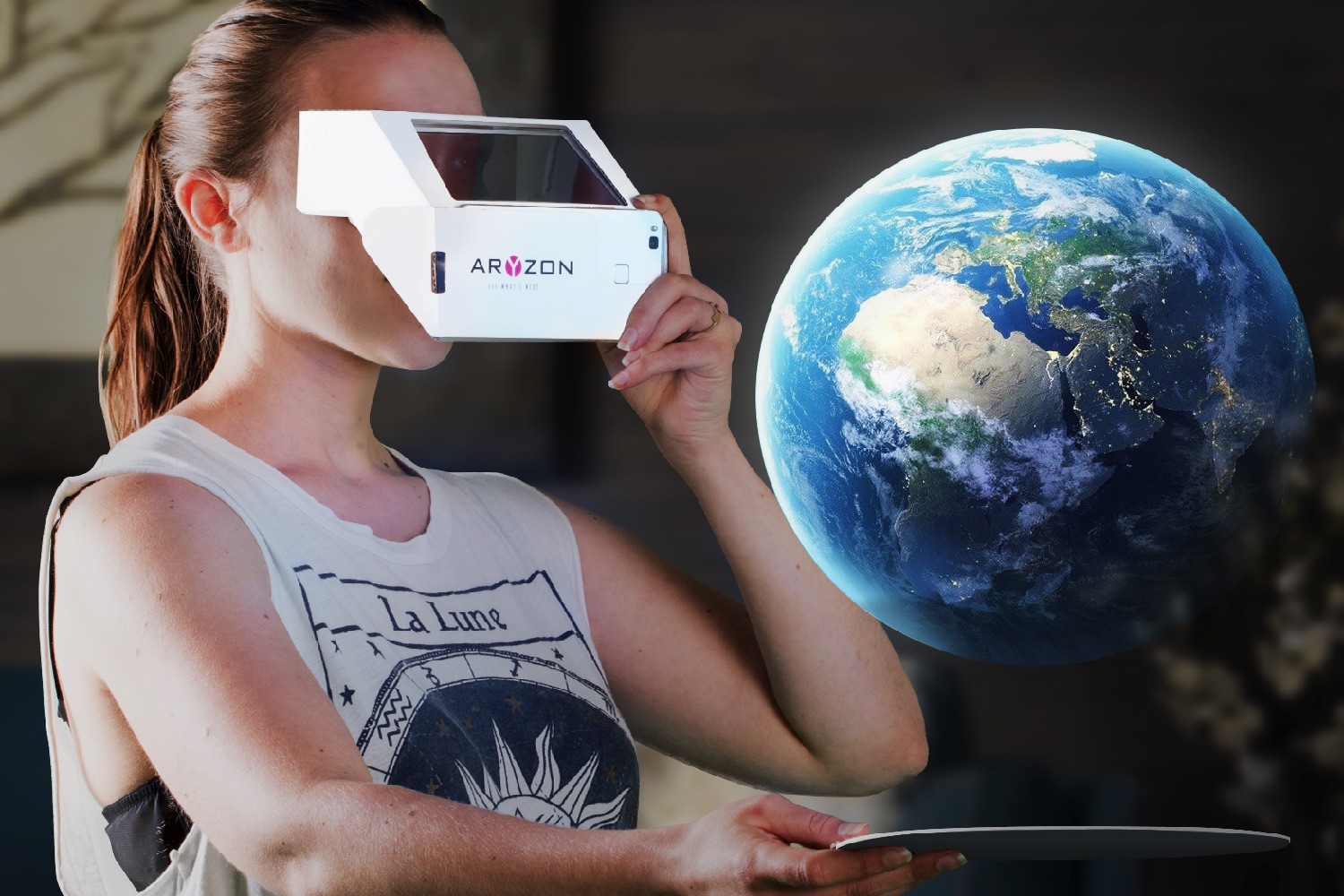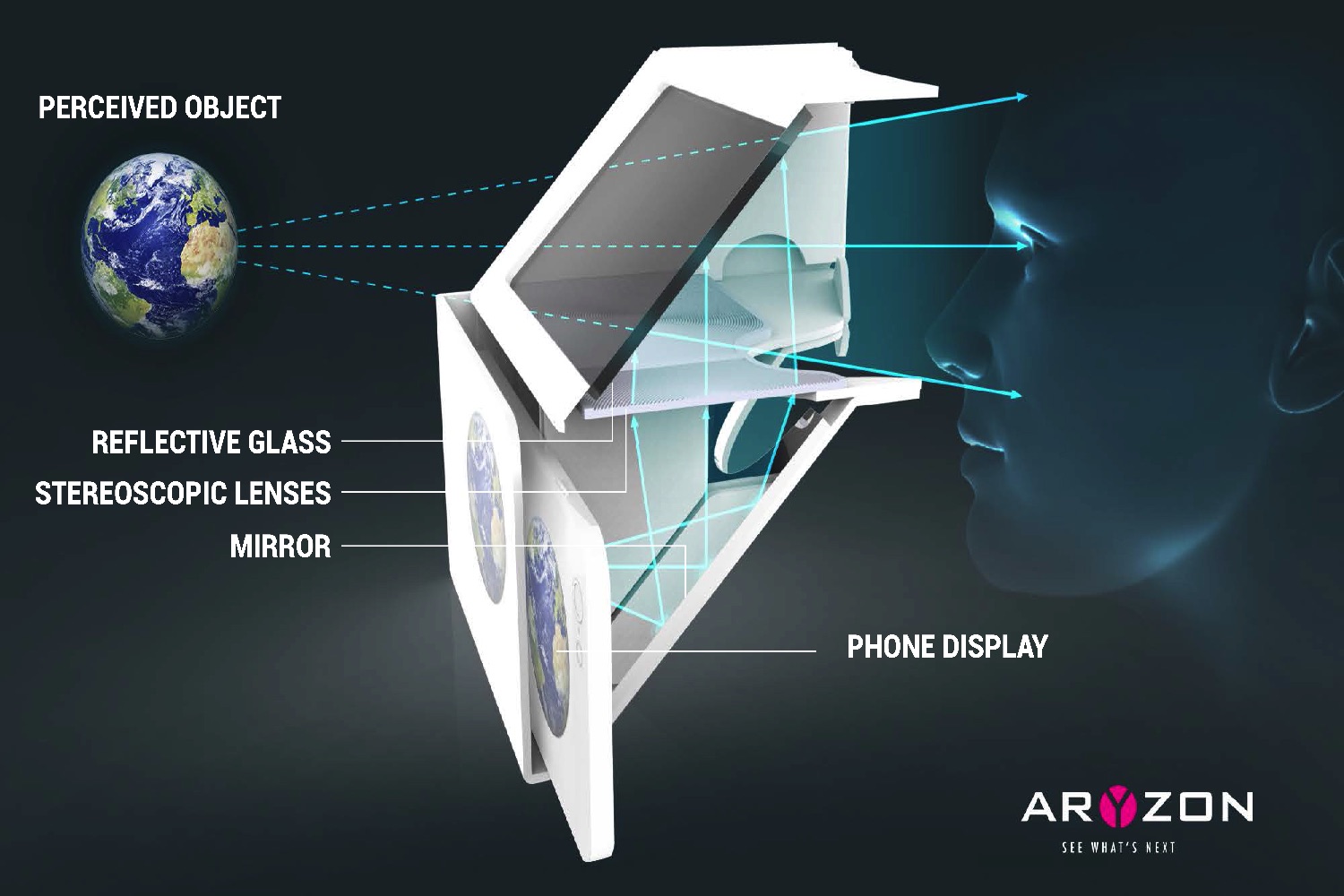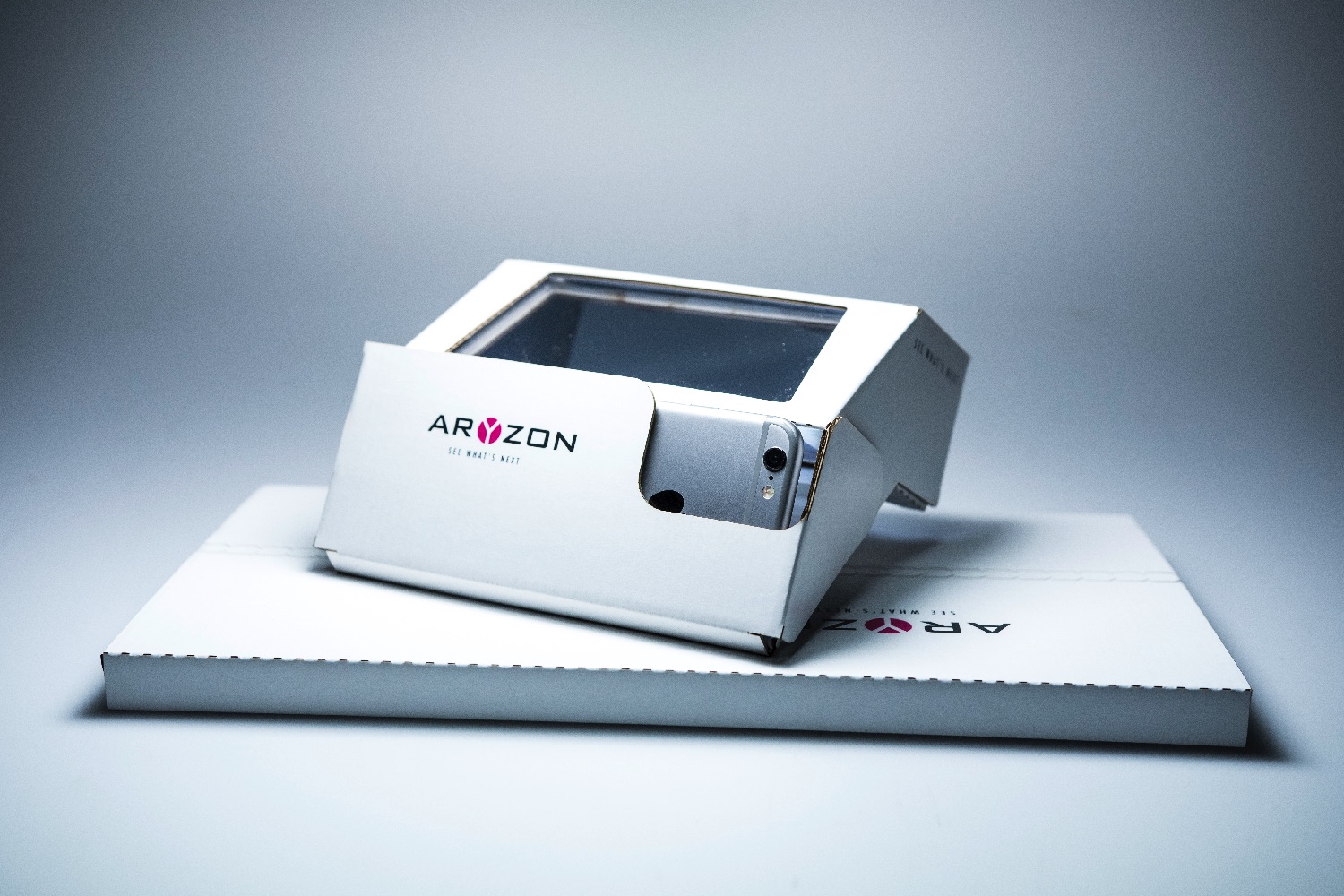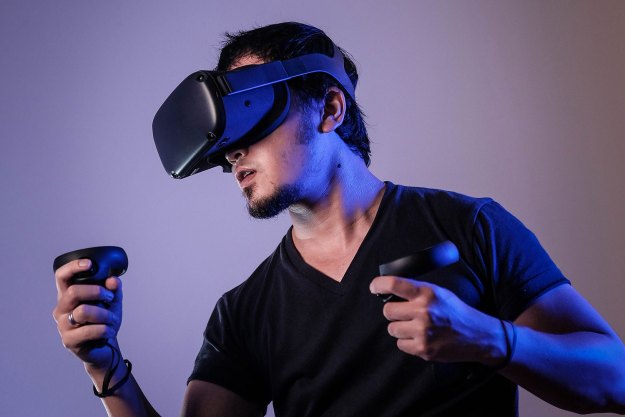Now a new Kickstarter campaign by the startup Aryzon wants to do for augmented reality (AR) what Cardboard did for VR.
Thanks to a set of lenses, cardboard, and a smartphone camera, its headset is able to place virtual content projected from users’ smartphone screens within their own environment. The result promises to provide stunning AR for quite literally 1 percent the cost of the $3,000 Microsoft Hololens. And it all comes flatpacked in a DIY kit that’s thin enough to fit through your front door mail slot!
“What makes this exciting is that it allows everyone to experience augmented reality,” Maarten Slaa, founder and CEO of Aryzon, told Digital Trends. “We have designed the Aryzon to be as easy to use as possible. It comes as a DIY package, and if you’ve finished arts-and-crafts [class] you will be able to build it. Using the Aryzon is just as easy: just open the app, slide in your phone, and [we] will guide you through the possibilities of AR.”
By superimposing computer graphics over real-world images, augmented reality offers a massive range of possible applications. These could be anything from frivolous use cases like cute AR puppies which play on your real desk while you’re working to useful tools that could, for instance, help a physiotherapist explain to a patient why their knee is hurting.
The Aryzon headset itself will be fully accessible to developers of current 2D augmented reality apps for smartphones, but Slaa says that the headset will ship with the company’s own app to offer a taste of what’s to come.
“The Aryzon comes with a free app that functions as an introduction to AR, and allows you to view and interact with your own 3D models,” Slaa said. “We are constantly expanding the functionality of our own app, and support developers who want to develop for the Aryzon and build their own applications. This way we hope AR becomes a more mainstream technology.”
The interest from users certainly seems to be there. Within its first 24 hours, after going live on Kickstarter, Aryzon already reached its funding goal. If you want to get involved, you can pre-order a headset for $30. Shipping is set to take place in September.
Editors' Recommendations
- I don’t want Apple to announce its VR headset
- Apple AR headset price just leaked, and it’s as expensive as you’d expect
- Google’s life-changing AR smart glasses demo gave me shivers
- Apple’s VR headset could get these surprise iOS features
- Apple may have just leaked its VR headset’s operating system







